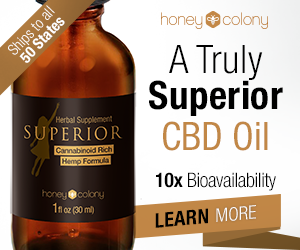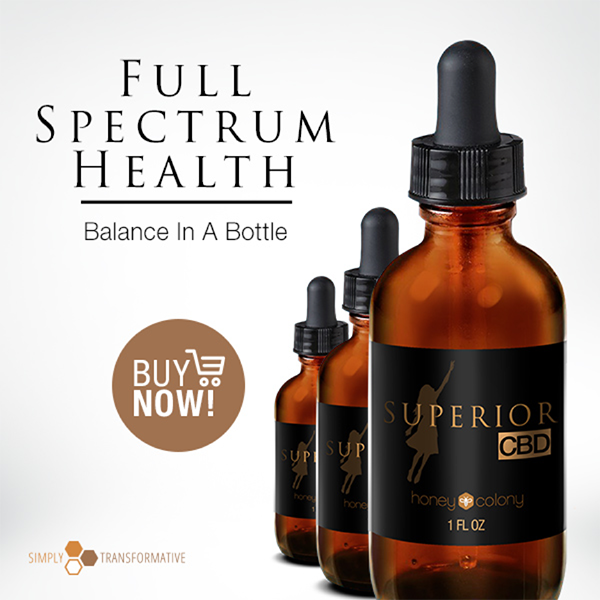 It would be difficult to fail to notice the surge in meaningful media attention to the health and wellness benefits of CBD.
It would be difficult to fail to notice the surge in meaningful media attention to the health and wellness benefits of CBD.
Even the most entrenched opponents of cannabis legalization have relented, under the weight of emerging research. Of course, history and testimony to the medicinal use of cannabis is far and deep, reaching into antiquity.
While marijuana – including CBD (cannabidiol) oil products made from marijuana – must comply with seed-to-sale state laws that make these products illegal to transport across state lines, hemp – whether hemp oil, hemp nuts or hemp supplement oils that are highly concentrated with CBD- is perfectly legal for use throughout the United States, as long as the hemp is imported from an international source. (Hemp oil grown in the United States is subject to the same seed-to-sale state laws that apply to marijuana.)
Now, many people are understandably flummoxed by a very active campaign to convince the public that CBD is different depending on whether it’s derived from marijuana or hemp. Hemp and marijuana are both Cannabis. Hemp is Cannabis sativa, and marijuana is either Cannabis sativa or Cannabis indica. Hemp is simply the common and legal term for cannabis that contains less than .3% THC, and marijuana is the common and legal term for cannabis that contains .3% and more THC.
CBD, or cannabidiol, is the same plant compound, regardless of whether it’s found in a low-THC or high-THC cannabis plant.
Another rather bewildering allegation claims that hemp-derived CBD oil is “dirty” and marijuana-derived CBD is “clean.”
Let’s take a good look at the claim, which is based upon the underlying premise that hemp acts as phyto-remediator. Well, yes, it does. All cannabis serves exceptionally well for phyto-remedation purposes. This means that cannabis mops up contamination and can be used to clean up all manner of nastiness. It also means that if it’s grown under less-than-pristine conditions, it carries that nastiness with it when it’s harvested. And, it carries that nastiness with it into products made with it. So, clean sourcing is an especially big deal with ALL cannabis.
The presence of aflatoxins and other fungal and bacterial contaminants, heavy metals and pesticide residues is necessarily the result of agricultural/horticultural conditions.
Recent testing of cannabis products from Los Angeles marijuana dispensaries showed over 90% of tested products to contain HIGHER than normal contaminants and pesticide levels, despite organic claims. (The USDA National Organic Program does not certify organic claims on marijuana, and it’s actually not a legally permitted claim on these products.- FYI, I’m an certified IOIA, Independent Organic Inspectors Association organic processing inspector.) There’s no intrinsic difference between high-THC cannabis and low-THC cannabis that somehow renders one clean and one heavy with contaminants. As with every other crop, it is a matter of soil conditions, growing conditions and horticultural inputs.
Garbage in, garbage out.
 In point of fact, while there is NO third party organic certification system available for marijuana at present, hemp qualifies for organic certification. We extract our CBD rich hemp oil from certified organic Cannabis sativa grown in Europe. Our CBD oil is extracted using supercritical CO2, the cleanest possible processing system. In the US, we are NOT permitted to obtain USDA NOP Organic certification for our product itself, due to our use of CBD rich hemp oil. (This is a decision made by the US government’s organic program, that operates under the umbrella of the USDA, despite the legality of hemp and cannabinoid rich hemp oil.)
In point of fact, while there is NO third party organic certification system available for marijuana at present, hemp qualifies for organic certification. We extract our CBD rich hemp oil from certified organic Cannabis sativa grown in Europe. Our CBD oil is extracted using supercritical CO2, the cleanest possible processing system. In the US, we are NOT permitted to obtain USDA NOP Organic certification for our product itself, due to our use of CBD rich hemp oil. (This is a decision made by the US government’s organic program, that operates under the umbrella of the USDA, despite the legality of hemp and cannabinoid rich hemp oil.)
Although Luminary Medicine Company formulas are made with exclusively certified organic and wildcrafted ingredients, there is no auditing system in place, so neither our product nor any other consumable product using cannabinoid-rich hemp oil may legally use the word “organic” on the front panel of the product. When the word “organic” is used on the front panel of a consumable, CBD rich oil product, it ought cause a consumer to pause and consider the legitimacy of other claims and the overall qualification and reliability of the manufacturer.
What this means is that there is no third-party organic certification system in place to vet the growing and production standards and safety of either THC or CBD cannabinoid rich oils and products in the United States.
How do we insure that our CBD rich hemp oil is free of these harmful contaminants? We test. And we test again. We use a highly esteemed laboratory. We test for potency- meaning that we test to insure that our claims are accurate- and we test for a complete profile of biological, heavy metal and pesticide contaminants. We encourage others to do the same.
To my fellow plant medicine makers: we’re on the same side, in our commitment to vital nutrients and personal authority and regulatory reforms. Let’s not fall prey to squabbling amongst ourselves, and diminishing our credibility and degrading our cause. Let’s do this well.
To learn more about Superior CBD Oil, made from Luminary Medicine Company, visit Marisa’s previous blog post here. In it she describes why this CBD oil, along with MCT oils, have made it into her daily regimen.

Could you tell me if we can still get a discount if we purchase.
Hi Deborah! I believe they have discontinued the twenty percent discount now. Sorry!
Love when people educate others on CBD – good read!
Excellent information. One of the things that most people aren’t aware of is that hemp does have organics certification. Additionally, some companies are willing to publish that online, while others aren’t. I think this can make or break the trust differential for many companies.
Great info. Lot’s of sites about cbd don’t really give good content, but you do so thanks for the info. I am just starting to learn more and more about cbd so i am going to poke around your site a little bit more!
Were you paid or given *anything* in exchange for this blog post?
Hi Lupus Mom, I actually teamed up with this brand because it was one of the brand’s I had already used on my own. This article does have affiliate links in it, however. Today I use two different brands of CBD. One is Koi, peppermint flavor, and the other is from my NY dispensary and is part of the legal medical marijuana program here in New York. Superior is still an incredible brand, though it does have herbs in it that some people found they cannot take depending on their medication. Other brands such as Koi or CW Hemp do not contain herbs, if you are looking for something with less ingredients. Hope this helps! XO Marisa
Great read.
What is your valuation of Hempworx CBD oil ?
Need to research MCT oil.
GOOD STUFF BUT NEED TO ADDRESS:
You’ll find CBD oil made from both hemp and from cannabis flower. While hemp oil contains only about 3.5 percent CBD, high-quality cannabis CBD oil contains up to 20 percent CBD. This is the product you should look for if you want to try CBD for medicinal purposes. While CBD hemp oil has lots of vitamins and antioxidants, including magnesium, vitamin E and potassium, it is not associated with the positive effects that have been attributed to cannabis-based CBD oil.
Thank you for the additional information! Marisa
Thank you so much! This is the exact clarity I was looking for! I’d still like to better understand the therapeutic differences between Full Spectrum and Broad Spectrum, because I have been reading a lot about how the entourage effect increases efficacy, and that THC:CBD is the best medicinally (when treating migraines, and auto-immune issues). Based on the comments, I believe that it is now legal to grow hemp in most states vs. importing (per article).
Thank you for sharing and spreading awareness! Cannabis is really indeed magical. As studies progress, it unfolds a lot of possible uses and applications in science and medicine. I hope this could be the future treatment of a lot of diseases.